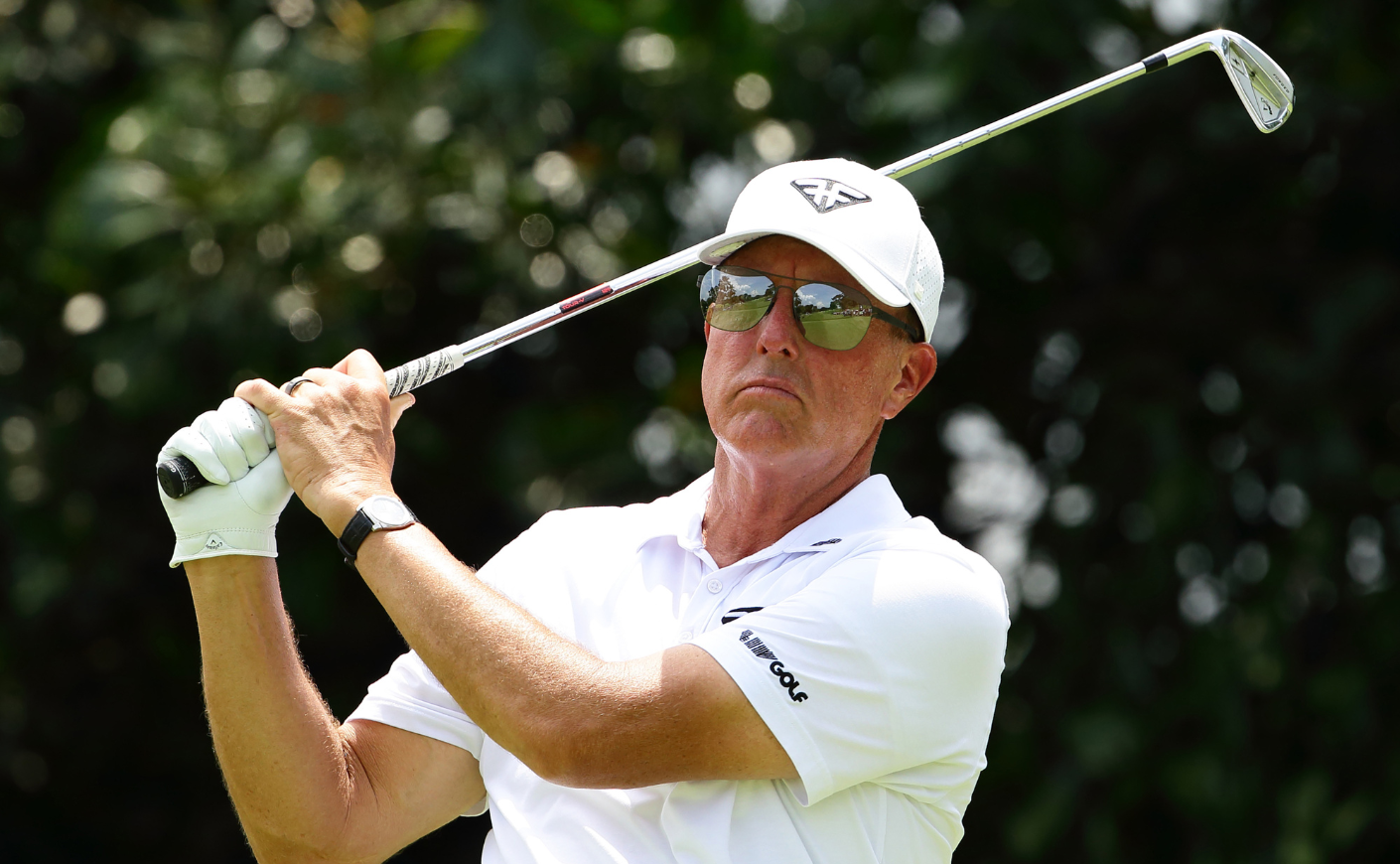With the NFL season in full swing, plenty of fans are looking forward to a fall filled with football, food, and friends. But for many, that equation also includes betting on the big games — and one sports legend is speaking out about how dangerous that can be.
Golf great Phil Mickelson, who boasts three wins at the Masters Tournament and a slew of other high-profile victories, spoke out on his Instagram profile about his own addiction to gambling and how it's affected his life.
"I won't be betting this year because I crossed the line of moderation and into addiction, which isn't any fun at all," he wrote. "The money wasn't ever the issue since our financial security has never been threatened, but I was so distracted I wasn't able to be present with the ones I love and caused a lot of harm."
That disconnect with his friends and family was "so hurtful" to them, Mickelson recalls, adding that he often heard feedback like "you're here, but you're not with us."
"It's like a hurricane is going on outside and I'm isolated in a shelter, oblivious to what was happening. When I came out, there was so much damage to clean up that I just wanted to go back inside and not deal with it," he said.
What causes a gambling addiction?
That idea of gambling as a shelter from the things that stress us out is common among those who struggle with this addiction, according to James Whelan, Ph.D., director of The Institute for Gambling Education and Research. While impulsivity is a big part of how casual betting slips into a problem, the most common theme among addicts is this: "The fun is a relief and a reward in life, and the harms that occur are something people push off or wish would go away," Whelan told us in a larger discussion about sports betting.
The classification of gambling as an addiction can be hard to some to understand, since it doesn't involve a substance that someone's hooked on consuming, like alcohol or drugs. But research suggests that a big win can light up the same reward pathways in the brain as those substances, Whelan explains. And gambling can be particularly dangerous because of how addicts justify their behavior with the prospect of a hefty payout.
"No one goes out drinking for the night thinking that they're going to wake up the next morning and their world's going to be taken care of," Whelan says. "Gamblers believe that. It's hard for them to escape the idea of, 'I could end the night and all my problems are going to be solved.'"
How can you stop a gambling addiction?
If you or someone you know is struggling with a fixation on sports betting, you can get assistance right here from the National Council on Problem Gambling. Confidential help is available 24 hours a day via their gambling addiction hotline, 1-800-522-4700, or via online chat.
Mickelson said he's pushed past gambling's grip on his life with "many years of receiving professional help," as well as the backing of his wife, Amy Mickelson.
"She has loved me and supported me through my darkest and most difficult times. I couldn't have gotten through this without her," he said. "I'm so grateful for her strength in helping us get through the many challenges I've created for us. Because of her love, support, and commitment, I'm back on track to being the person I want to be."
The golf superstar concluded his vulnerable post with words of wisdom that will resonate with anyone struggling with the same affliction:
"This football season and beyond, enjoy yourself with moderation so it doesn't detract from your ability to be present," he wrote. "In my experience, the moments with the ones you love will be far more remembered than any bet you win or fantasy league triumph."









